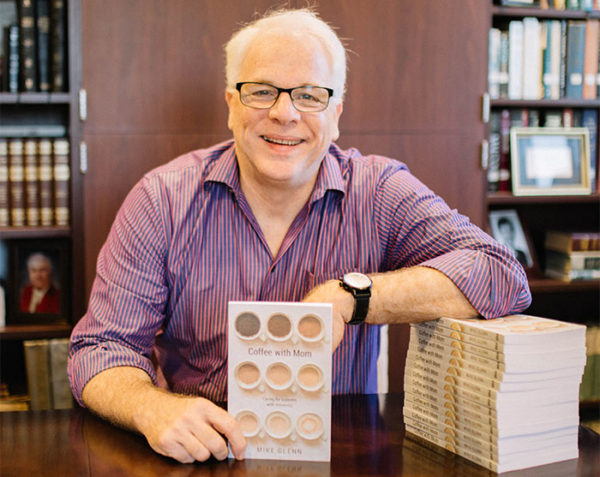David Evans thinks “Miracle Man” sounds like a good title for a book. Evans also believes “miracle man” best describes how he survived a series of cardiac arrests in May 1999.
Not only did he survive the heart attacks, Evans, 42, said he is convinced a prayer chain of thousands of people worldwide is responsible for his recovery after doctors predicted he would not live.
“When I started coming to in the hospital, that’s what they were calling me,” he said. “People still call me the ‘miracle man,’ so I thought that would be a neat title for the book.”
Evans said he is 20 percent of the way through writing a book with his nephew, Jason Allen Kendall. The book, which he said is being written in the form of a novel, chronicles the comeback of the divorced father of three children.
On May 28, 1999, Evans survived a four-day series of cardiac arrests, the first of which lasted 15 minutes. He was hospitalized six weeks, and doctors did not think he would live.
But doctors underestimated the power of prayer.
“Within the hour of my first arrest, people at my church (Hilldale Baptist, Birmingham) began the largest prayer chain that I have ever been a part of,” he said.
For Evans, who was unconscious the first two-and-a-half weeks of his hospitalization, knowledge of the prayer effort would come later. Still Evans’ friends and those he did not know were busy praying for him.
“Many people contacted friends and families by phone or e-mail on behalf of my three children and me,” he said. “I had no idea what had taken place, because there were hundreds of people that had come by. Thousands of people had been phoned.”
Evans would later learn requests for his safe recovery not only involved churches in the South, but also in other countries. “It’s overwhelming for me to be part of something like that,” he said.
Even after he woke up June 16, Evans was still unsure of what had happened, and it was a few days before he learned how close he came to dying. A respirator tube in his mouth kept him from talking, and he was too weak to write.
“I couldn’t communicate with anybody; it took awhile,” he said. “It was probably a week or so.”
Evans brags on his oldest daughter, Cathlene, 16, who he was told kept an almost constant vigil at her father’s bedside.
“I didn’t want to leave, I didn’t want to come home and think about it,” she said.
Because of her age, Cathlene was the only child allowed into his room. Fearing the worst, doctors allowed the other two children to visit Evans the fourth night he was in the hospital.
“The fourth night — with them being young like they are — they told them that they could come on to let them see me alive,” he said, “if they wanted to see me alive, they needed to come up then.”
The children said they still remember the emotions they felt.
“I thought it could never happen to us,” said David Jr., 11. “I was wondering what life would be like without him and what we were going to do.”
But daughter Erin, 13, said something told her Evans would survive.
“I knew that God was telling me in my heart and in my head that he’s going to be OK, that he’s going to live,” she said.
It was within an hour of his children saying goodbye that doctors began to see a turnaround.
“They kept seeing me gradually get better,” he said. “But to improve like I did, they weren’t expecting me to have done that.”
Evans suffered none of the consequences doctors had predicted — neither brain damage nor kidney failure.
Since the incident, Evans, who is now on medical leave, has continued to recover. He takes a dozen medications daily, sticks to a low sodium diet and limits his fluid consumption.
Doctors also told him he needs to walk at least 20 minutes each day, although Evans admits he has not been faithful in that aspect of his recovery.
For Evans, the best part of the incident is the realization that God has worked through his circumstances to affect the lives of others.
“My relationship with God has always been good,” he said. “My faith has always been strong in Him, but as far as what it did for me — it was overwhelming to me, because it strengthened other people around me, because they saw the results of their prayers.”
‘Miracle Man’ beats heart attacks
Related Posts

FDA, researchers seek methods of early detection of Alzheimer’s
October 1, 2024
A new blood test could help doctors diagnose Alzheimer’s disease more accurately in a primary care setting, leading to crucial

Alzheimer’s, dementia: Pastor shares lessons learned
August 12, 2019
As a minister for more than 40 years, Mike Glenn walked through the valley of dementia and Alzheimer’s disease with

Co-author Powell shares 6 ways to reach young people
October 27, 2016
There’s no way around it: The Church is shrinking, and it’s aging. And with the growing number of unchurched young

Shame isolates, destroys community, psychiatrist says
October 13, 2016
Nobody needs a psychiatrist to explain what shame feels like — we all know, said Curt Thompson, a noted psychiatrist

Share with others: